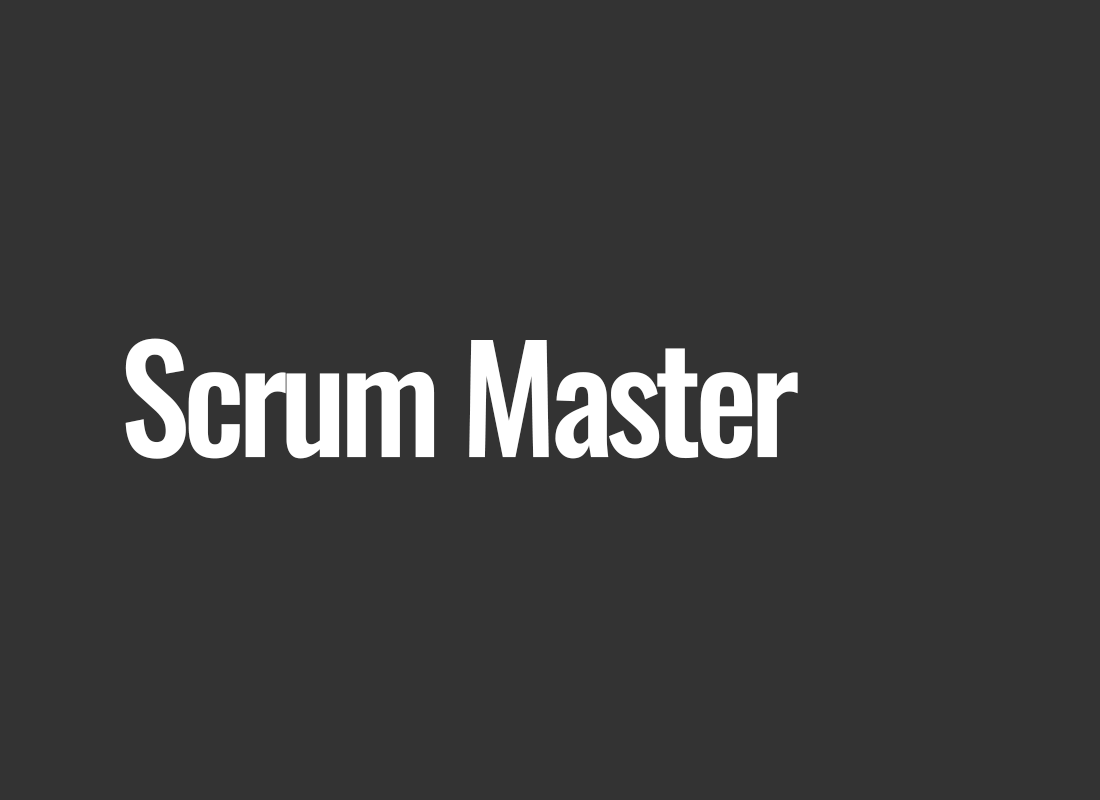Scrum Master
In today's dynamic business environment, where innovation and rapid adaptation to change are crucial for success, the Scrum methodology has become the foundation for effective project management, particularly in the IT and e-commerce sectors. At the heart of this ecosystem is a figure of crucial importance - the Scrum Master. They are not just a team leader but an individual whose mission is to shape an efficient, flexible work environment that enables the team to achieve the highest efficiency. It is worth delving into this role because the Scrum Master plays a key function in ensuring project effectiveness and delivering business value.
Scrum, as an agile framework, is gaining increasing popularity due to its ability to adapt to dynamic project requirements. In this context, the Scrum Master becomes an informal leader who not only oversees processes but, more importantly, supports the team in achieving set goals. However, before delving into the specifics of tasks and skills of this specialist, it is worth reflecting on the roots of Scrum and the role the Scrum Master plays in this context. Discovering the secrets of this role opens the door to understanding its crucial place in today's agile methodologies.
The Scrum Master – a link between the team and project success
The role of the Scrum Master in a project goes far beyond merely overseeing processes. They are a true barrier hunter and creator of a conducive environment where the team can flourish. The Scrum Master doesn't impose solutions but acts as a mentor, assisting the team in independently identifying and removing obstacles. Their role is closely tied to Scrum principles and values such as transparency, inspection, and adaptation.
The Scrum Master is not only an advocate for the team but also a strategic partner for the Product Owner. They support in creating the backlog and ensure that prioritization is clear and aligned with project goals. Efficient Scrum meetings are also part of their responsibilities, from daily stand-ups to retrospectives at the end of a sprint.
In the role of an informal leader, the Scrum Master becomes the driving force of the team, motivating them to achieve set goals. Responsible for removing any barriers hindering project progress, they act as a mediator in conflict situations, fostering the building of strong relationships within the team. Encouraging continuous improvement, using the principles of an empirical approach to management, is also part of their role.
In this way, the Scrum Master fulfills a key role in the chain delivering business value. Their role is not only to ensure that processes align with Scrum principles but, above all, to shape the organizational culture where innovation, flexibility, and collaboration take precedence. Let's now analyze the specific duties of the Scrum Master and the skills necessary to perform this role at the highest level.
Role and responsibilities of the Scrum Master
As a catalyst for team efficiency, the Scrum Master has a series of key responsibilities. The first is to ensure that Scrum principles and values are not only known but actively applied. Organizing regular Scrum meetings is one thing, but it's equally important for these meetings to be effective. The Scrum Master ensures that each team member has the opportunity to share their progress, challenges, and plans, contributing to project transparency.
Removing obstacles is a crucial element of the Scrum Master's role. These obstacles can be technical, hardware-related, or even interpersonal conflicts. Their task is not only to eliminate these obstacles but also to identify the sources of problems and implement long-term solutions. In the case of conflicts, the Scrum Master becomes a mediator, supporting the team in resolving disputes constructively.
Collaboration with the Product Owner is also a crucial area of action for the Scrum Master. Supporting them in creating the backlog and maintaining constant dialogue to understand business priorities allows for the effective realization of project goals. In this facilitating role, the Scrum Master becomes a bridge between the team and external stakeholders, contributing to the smooth flow of information.
Regarding team development, the Scrum Master acts as a coach, supporting individuals in developing their skills and capabilities. Introducing practices related to continuous improvement, such as retrospectives, allows the team to reflect on their work and make improvements in subsequent sprints. Their role is not only project management but also building the team's capacity for self-organization.
Opportunities for development and advancement
The role of the Scrum Master offers a fascinating field for professional development. In addition to honing skills related to project management, communication, and conflict resolution, the Scrum Master can take on the challenge of advancing to the role of Scrum Coach. At this stage, they focus on introducing Scrum on a broader scale in the organization, acting as an expert and mentor for other Scrum teams.
For ambitious individuals, there is also a path to the role of Corporate Scrum Master. In this position, they manage Scrum Masters on various projects, coordinating the agile transformation strategy at the company level. By developing their competencies and gaining experience, the Scrum Master has the chance to become a key player in the field of Agile project management and even advance to the position of Director of Agile in the organization.
The Scrum Master is not just a team leader but also an architect of an organizational culture based on agility. Their influence extends far beyond daily project tasks, shaping how organizations think about innovation, adaptation, and effectiveness. Thus, by growing in this role, individuals not only build their careers but also contribute to the transformation of entire organizations in the era of dynamic and agile management.




